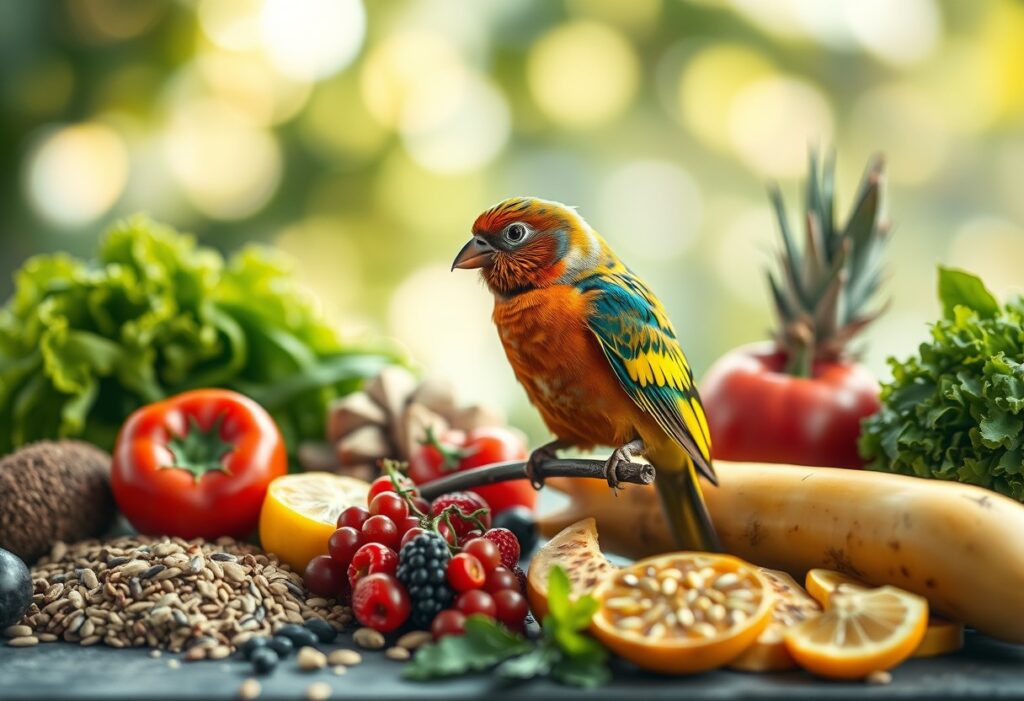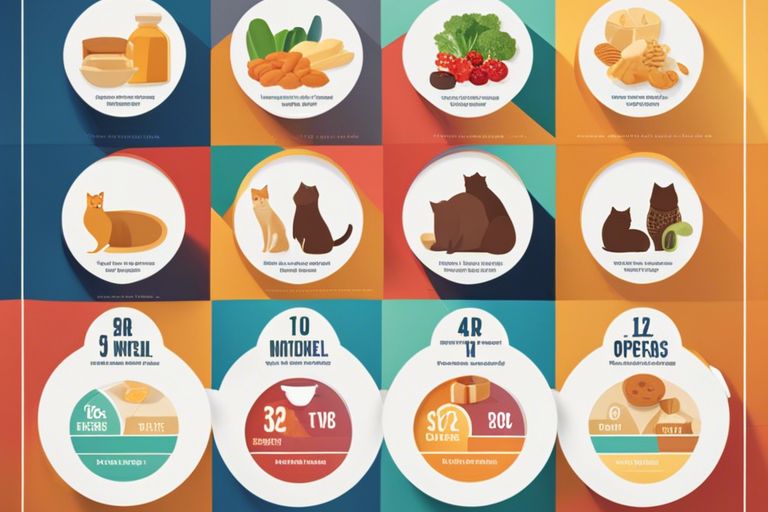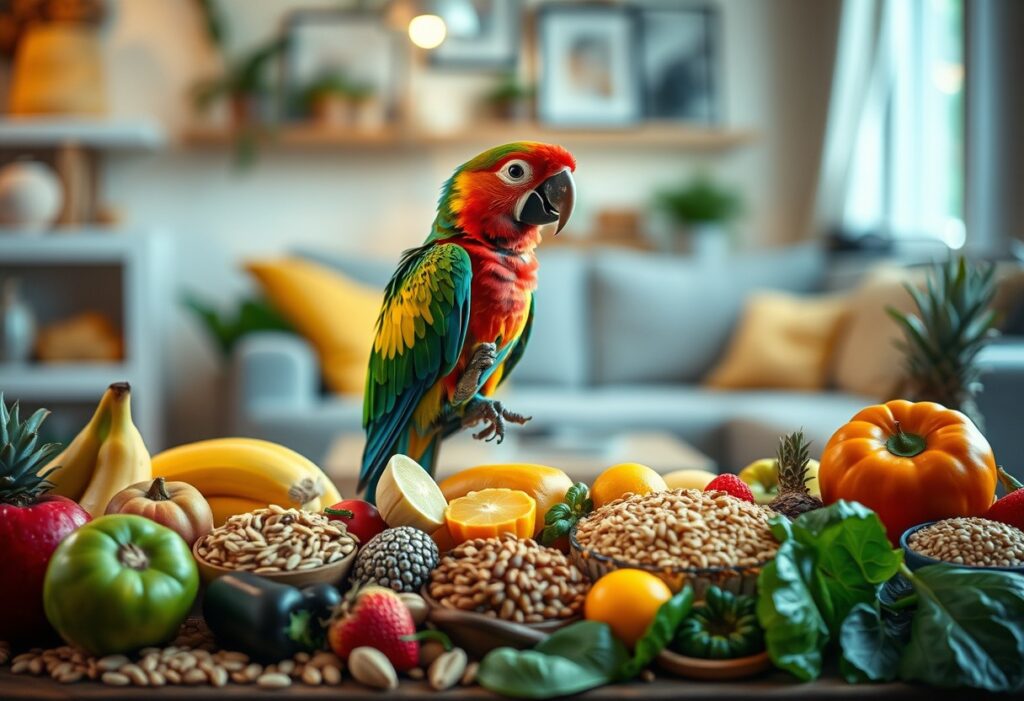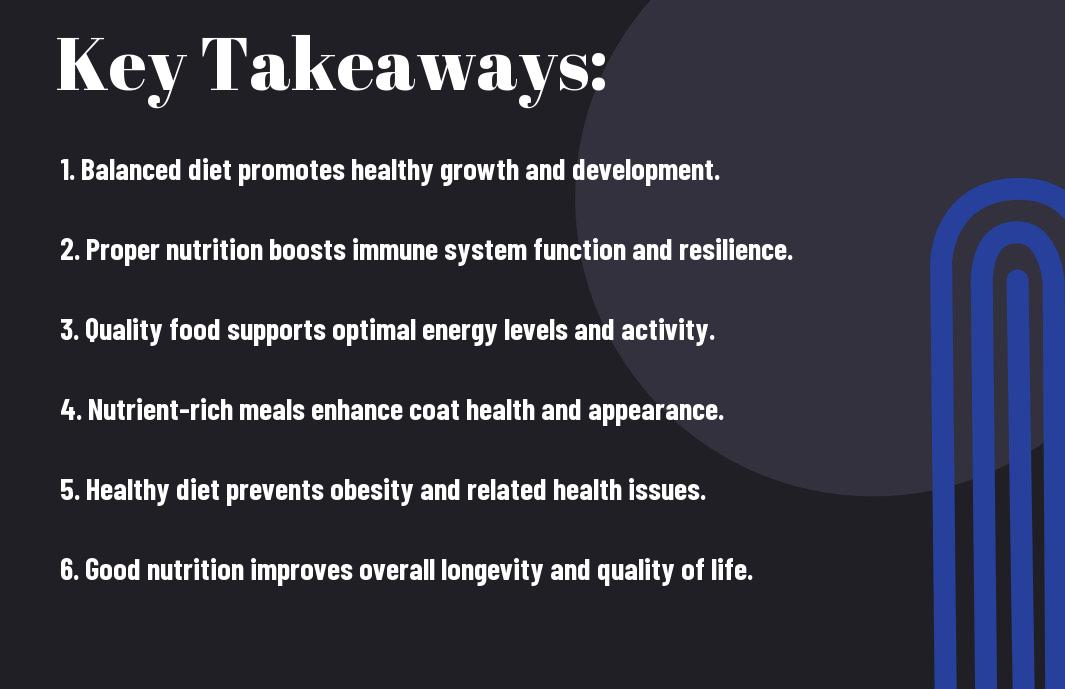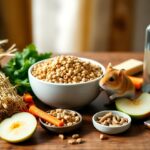There’s no doubt that providing your feathered friends with a balanced diet is crucial for their health and well-being. When you feed your birds a variety of nutrient-rich foods, you help ensure they receive the crucial vitamins and minerals necessary for their optimal growth, vibrant feathers, and overall longevity. On the contrary, neglecting a balanced diet can lead to severe health issues such as malnutrition or obesity. By understanding the importance of nutrition, you can take proactive steps to enhance your birds’ quality of life.
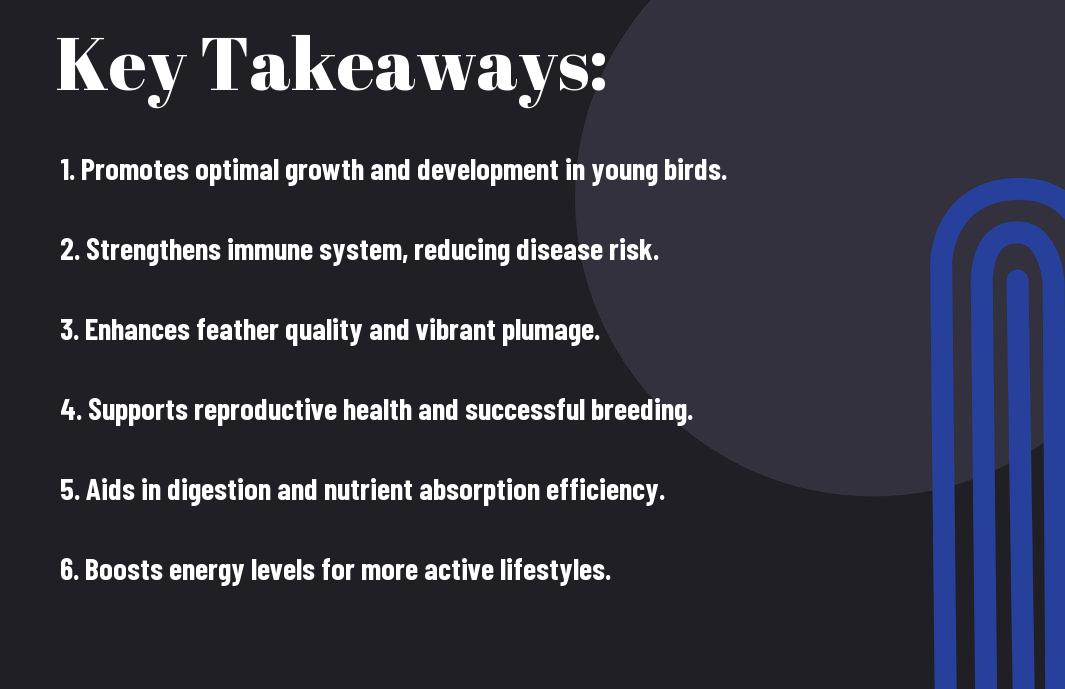
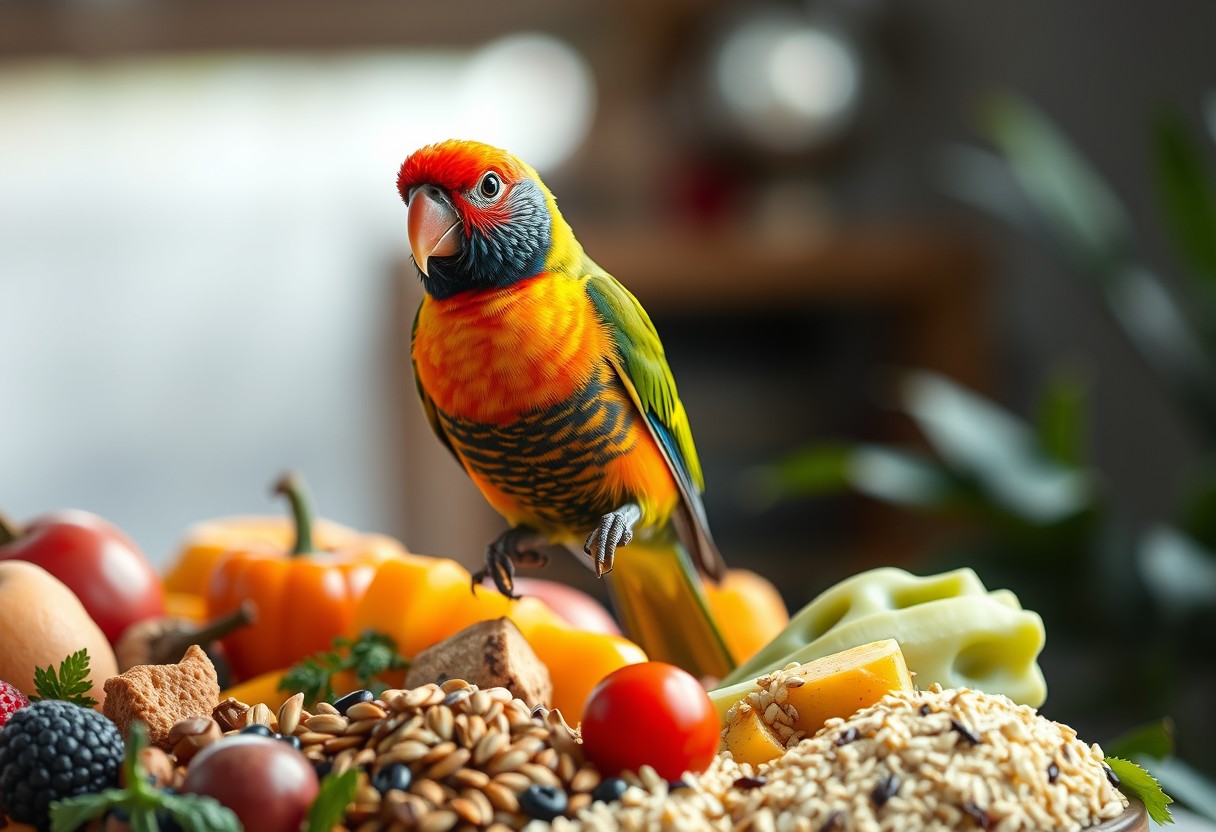
Understanding a Balanced Diet for Birds
While it may seem intuitive that birds need food to survive, understanding the intricacies of a balanced diet is vital for their longevity and overall health. A balanced diet provides your feathered friends with the crucial nutrients required for optimum development, maintenance, and energy. Implementing a proper dietary regimen can prevent many health issues that arise from nutritional deficiencies or excessive feeding of certain food types. Thus, it is important to educate yourself on what constitutes a balanced diet for your specific species of bird.
Essential Nutrients for Avian Health
On the fundamental level, birds require a mix of macronutrients and micronutrients for their well-being. Macronutrients typically include proteins, fats, and carbohydrates, while micronutrients encompass vitamins and minerals. Proteins are crucial for growth and tissue repair, while fats serve as a rich energy source. Carbohydrates, largely derived from seeds and grains, boost your bird’s quick energy needs. Vitamins and minerals play supportive roles in bodily functions, such as strengthening immune response and fostering bone health.
On top of that, the diversity within each nutrient category cannot be overlooked. For instance, the sources of protein you offer can vary significantly—from seeds and pellets to fruits and even insects, depending on your bird’s needs. This variety ensures that you cover all crucial amino acids necessary for your bird’s specific biological functions.
Common Dietary Components
Components of a balanced diet for birds typically include a combination of seeds, pellets, fresh fruits, and vegetables. While many owners gravitate towards seed-based diets due to their availability and convenience, they often overlook the importance of pellets, which are designed to contain all the crucial nutrients your bird requires in a single source. Additionally, fresh fruits and vegetables add vital fiber and hydration to your bird’s diet, aiding digestion and overall health.
To ensure that you are providing your bird with a well-rounded diet, consider including less common dietary items like leafy greens and small quantities of lean meats or cooked grains. However, be cautious, as some foods, such as avocado and chocolate, can be toxic to birds. Always do your research and consult with a veterinarian to tailor your bird’s diet appropriately and ensure it never strays into harmful territories.
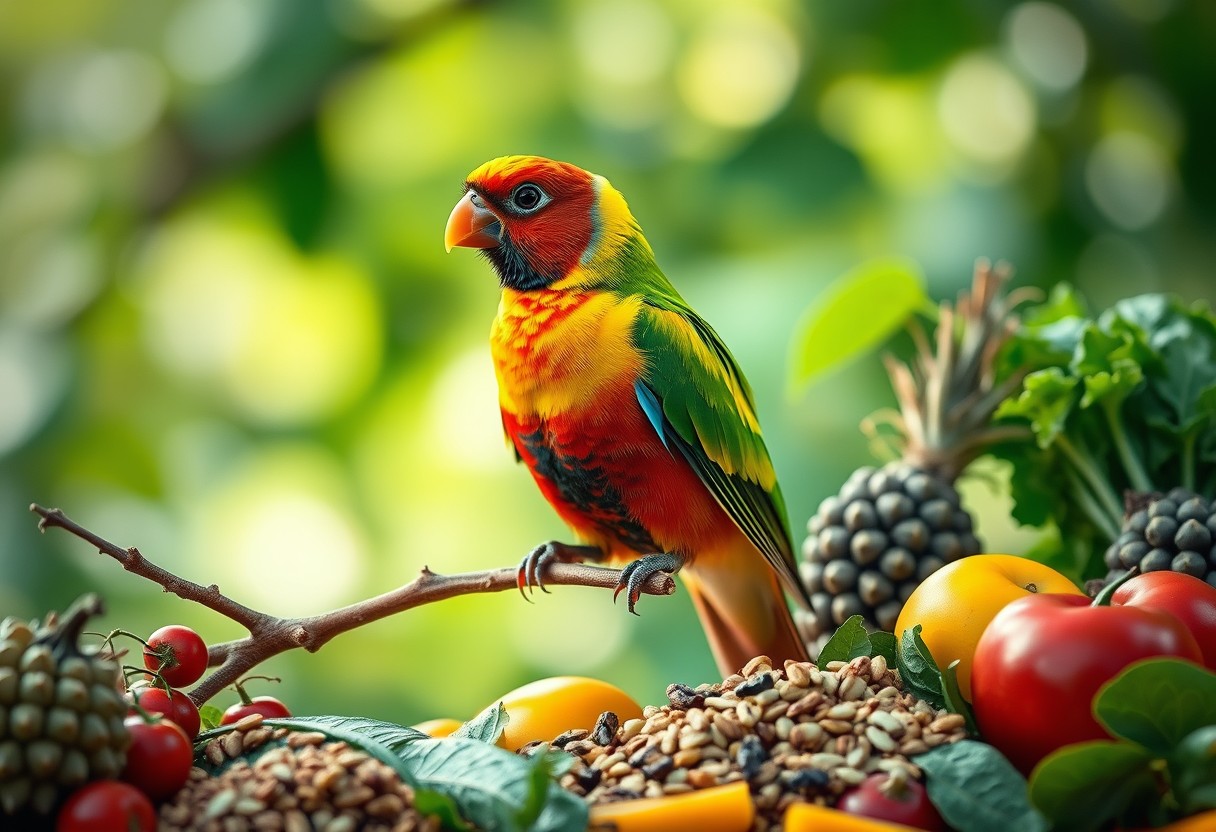
Benefits of a Balanced Diet
It is important to understand that a balanced diet is crucial not only for your health but also for the well-being of your feathered friends. A diet rich in important nutrients, vitamins, and minerals promotes optimal health in birds, leading to a range of benefits that enhance their overall quality of life. This balanced nutritional intake impacts various aspects, from physical health to behavioral patterns, ensuring your birds thrive in their environment.
Improved Immune Function
Function is an important aspect of your bird’s health, as a strong immune system helps them resist illnesses and infections. When your birds receive a well-rounded diet filled with the necessary vitamins and minerals, you enhance their body’s ability to fight off diseases. Nutrients such as vitamin C, vitamin A, and omega-3 fatty acids play vital roles in supporting immune responses, allowing your birds to remain healthy and active.
Providing a varied diet not only fortifies your bird’s immune system but also reduces the risk of chronic diseases and health issues that can stem from poor nutrition. By making smart dietary choices, you promote an overall healthier life for your feathered companions, ensuring they can enjoy their environment to the fullest.
Enhanced Feather Quality
An important indication of your bird’s health is the quality of its feathers. A balanced diet leads to enhanced feather quality, allowing your birds to display vibrant, shiny plumage. Essential fatty acids, proteins, and specific vitamins contribute significantly to feather growth and maintenance. Incorporating foods rich in these nutrients helps your birds maintain their feathers, making them feel more comfortable and secure in their skin.
Enhanced feather quality not only improves the aesthetic appeal of your birds but also supports their ability to regulate body temperature and facilitate smoother, more efficient flight. Neglecting their dietary needs may result in frayed or dull feathers, which can be an indicator of underlying health issues affecting your bird’s well-being.
Better Behavioral Health
Improved behavioral health is another key benefit of providing your birds with a balanced diet. When your birds receive the nutrients they require, they are more likely to exhibit stable and positive behaviors. A well-nourished bird is less prone to problem behaviors such as feather plucking, aggression, or excessive vocalization, as they feel more secure and less stressed in their environment.
Better behavioral health can lead to stronger bonds with you and promote socialization among your flock. When your birds are happy and healthy, they are more engaged and interactive, making them enjoyable companions. Ensuring their dietary needs are met is crucial for fostering this positive behavior, which ultimately benefits both you and your feathered friends.
Creating a Balanced Diet
Once again, it’s important to highlight the importance of creating a well-rounded diet for your birds. A balanced diet significantly contributes to your feathered friends’ overall health, vitality, and well-being. To achieve this, you must consider various food sources and ensure that your birds receive adequate nutrition in appropriate portions. By doing so, you can help prevent a range of health issues while promoting a happy, energetic lifestyle for your avian companions.
Food Sources and Options
Food should be as diverse as possible to cover all the nutritional needs of your birds. A balanced diet typically consists of a mix of seeds, grains, fruits, vegetables, and pellets. Each component plays a critical role; for instance, pellets provide a complete nutritional profile but should be complemented with fresh options like leafy greens or sliced fruits. Additionally, considering your bird’s species is crucial, as dietary preferences may vary. For example, parakeets might enjoy different seeds and fresh foods compared to cockatoos or macaws.
Moreover, you should strive to introduce new foods gradually. This will not only keep your bird’s diet exciting but also promote the acceptance of various flavors and textures. Including a range of foods can help prevent potential nutritional deficiencies, which can lead to significant health problems over time.
Portion Control and Feeding Guidelines
Options for portion control are vital in ensuring your birds do not overeat or develop unhealthy behaviors. It’s recommended to provide a daily amount of food tailored to your bird’s specific species and size. Generally, offering food twice a day is a good practice; remove any uneaten food after a few hours to encourage a healthy routine and prevent spoilage. Keeping track of your bird’s weight and adjusting portions as needed can also help maintain their health. Monitor their eating habits closely to gauge if the portions are suitable for their needs.
Control is a significant aspect of your bird’s diet. Overfeeding can lead to obesity and related health issues, such as fatty liver disease. Be mindful of their body condition and activity level; more active birds may require slightly larger servings compared to those that are less active. Using smaller bowls can also help you manage their portions more effectively, ensuring they don’t have access to excessive amounts of food at once.
Supplements and Additional Nutrients
Diet such as a well-rounded blend is fantastic, but sometimes your birds may need supplements to fill any gaps in their nutrition. While pellets offer a strong foundation, incorporating a variety of vitamin and mineral supplements can further enhance their diet. Consult with a veterinarian specializing in avian nutrition to determine if and what type of supplements your bird may need based on their dietary habits and health condition.
Supplements can provide important nutrients like calcium and vitamin D, particularly for breeding birds or species that require increased nutrients. It’s crucial, however, to avoid over-supplementation, which can lead to toxicity and other health issues. Always ensure that your birds’ primary diet is balanced, and use supplements as directed for optimal health.
Final Words
Following this guide on the benefits of a balanced diet for birds, you can greatly enhance your avian companion’s health and well-being. A nutritional diet not only promotes better feather quality and vibrant plumage but also supports optimum organ function and longevity. By ensuring that your pet bird receives a mix of fruits, vegetables, seeds, and fortified pellets, you are taking proactive steps to prevent common health issues and enhance their overall vitality. Be mindful of, the right balance of nutrients is crucial for maintaining an active lifestyle and boosting your bird’s immune system.
Additionally, a balanced diet contributes to your bird’s mental stimulation and natural behaviors, fostering a happier and more engaged pet. Birds thrive on variety and discovery; providing a diverse menu will help prevent boredom and encourage play and exploration. You have the power to make informed choices about your bird’s diet, ensuring they enjoy the many benefits that come with proper nutrition. By prioritizing a balanced diet, you not only improve your bird’s life but also enhance the bond you share together as their caretaker.
FAQ
Q: What are the main benefits of a balanced diet for birds?
A: A balanced diet for birds provides numerous benefits that are crucial for their health and well-being. Firstly, it helps maintain optimal body weight, reducing the risk of obesity-related issues. Secondly, a varied diet, including seeds, fruits, vegetables, and protein sources, ensures that birds receive all necessary nutrients, promoting strong immunity and overall vitality. Lastly, a balanced diet supports proper feather growth and maintenance, vibrant plumage, and healthy skin, enhancing the bird’s appearance and overall quality of life.
Q: How can I ensure that my pet bird is receiving a balanced diet?
A: Ensuring that your pet bird receives a balanced diet involves offering a variety of foods. Start by providing a high-quality pellet as a base diet, supplemented with fresh fruits and vegetables daily. Make sure to include a range of colors in the fruits and vegetables, as different colors often indicate different nutrients. Additionally, consider incorporating nuts and seeds in moderation for added protein and healthy fats. Avoid offering processed or sugary foods, and always provide fresh water. Regularly consult with an avian veterinarian to review your bird’s diet and make necessary adjustments.
Q: What specific nutrients should be included in a bird’s balanced diet?
A: A bird’s balanced diet should include a variety of nutrients vital for their health. Key nutrients include carbohydrates for energy, proteins for muscle and tissue development, lipids (fats) for energy and nutrient absorption, vitamins (such as A, D, E, and K) for metabolic functions, and minerals (like calcium and phosphorus) for bone health. Birds also benefit from fiber, which aids in digestion. It’s necessary to research the nutritional needs specific to your bird species, as requirements can differ significantly. Consider working with an avian nutritionist to develop a diet plan that meets these specific nutritional needs.
